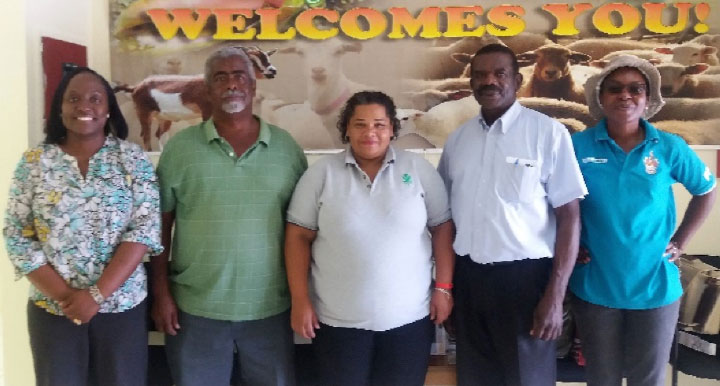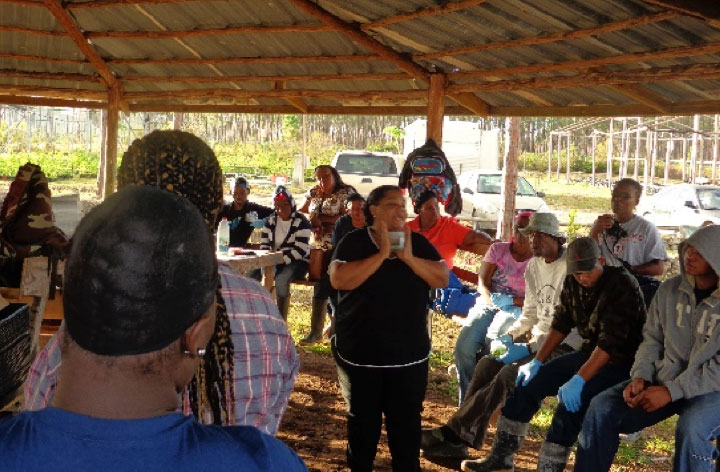|

|
 |
|
Last Updated: Feb 13, 2017 - 1:45:37 AM |

Biotechnologist and CARDI Representative for Brazil Omaira Avila Rostant led a two-day training seminar on plant propagation at BAMSI’s North Andros facility. From left are BAMSI’s Executive Director Dr. Raveenia Roberts-Hanna, Senior Agriculturalist Ayrett Lightbourne, BAMSI; Biotechnologist Omaira Avila Rostant, CARDI; Director of Academic Affairs Dr Joseph Lindsay, BAMSI, and Agriculture Development Officer Zakita Bethel, BAMSI
|
TheBahamas Agriculture & Marine Science Institute recently put on a two-day tutorial in plant propagation/tissue culture, led by one of the top biotechnologists in the region. Almost 50 students, farm associates and stakeholders in BAMSI’s Associated Farmers programme participated in the initiative held at BAMSI’s North Andros campus facility.
Leading the training was plant scientist Omaira Avila Rostant, who specialises in biotechnology and agronomy. Mrs. Rostant was part of a delegation from the Caribbean Agricultural Research & Development Institute (CARDI) who visited the country recently. Also on hand was Executive Director of CARDI Barton Clarke and livestock specialist Michele Singh. The trio also met with senior agriculture officials and toured industry sites while in the capital. The Bahamas recently became a member of CARDI and the visit was an effort to further strengthen the partnership and identify ways which CARDI could better support the nation’s industry and propel it forward. Mr. Clarke indicated the techniques Mrs. Rostant was showing the group were just two of the technical skills that CARDI brings to the table for the Bahamas.
During the training Mrs. Rostant gave participants an introduction to plant biology, micropropagation, and the stages of micropropagation in various crops. The plants used for the training were two flowers - orchids and anthuriums and two root crops - sweet potato and cassava. Micropropagation is the multiplication of cell tissue or small pieces of plant material into large numbers of plants within a laboratory or controlled setting. This methodology also allows plant materials affected by noxious diseases to be cleaned, she explained.

Biotechnologist Omaira Avila Rostant, a plant specialist (in black) with the Caribbean Agricultural Development & Research Institute (CARDI) gives students a practical demonstration at the BAMSI’s greenhouse (34, 36, 39, 52, 55, 59
|
Mrs. Rostant also gave attendees an overview of the advantages and disadvantages of micropropagation, and the protocols for acclimatizing and the transferring of plantlets from the laboratory to a greenhouse – a project the group would tackle on day two.
The second day of training moved to BAMSI’s greenhouse where the group was taken through the process of acclimatizing the plants, called ‘weaning’ and ‘hardening’. The practice essentially strengthens plants which become ‘delicate’ after going through the process of micropropagation, and is done in preparation for the plants being moved out of the lab and into a natural environment.

© Copyright 2016 by thebahamasweekly.com
Top of Page
|
|
 |

|
